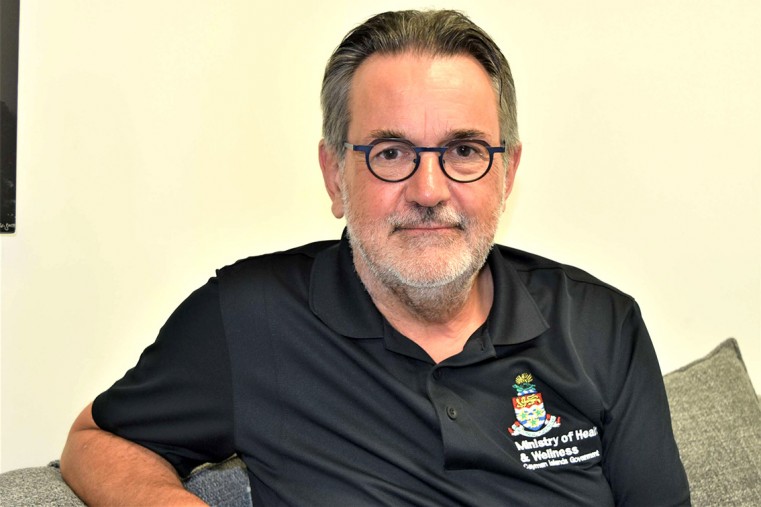- Job Market
- Upload Ad Requests
- Rates
- Home
- Video
- About Us
- Contact Us
- Business Showcase
- Archives
- Blogs
- Upload Advertisements
- Video News Release
- Front Pages
- Community Notices
- Law Enforcement
- Government
- Community Voice
- Health Care
- International
- Sports
- Politics
- Community
- Entertainment
- Advertorial 2
- Non-Profit Organisation(NPO)
- Adopt a Pet
- Tourism
- CIIPO
- Taste of Class
- Opinions & Editorial
- Environment
- Outstanding Employee
- Outstanding Performance
- Celebration
- Gardening
- Beneficial Ownership
- Tips and tricks
- Cover Stories
- Cost of Living
- Development
- Employment
- Education
- Arts and Culture
- Business
- Global News Briefs
- Hurricane Watch
- Breaking News
- Regional
- Public Notices
- Local News
- Lifestyle
- Finance
- Economic
- Election Center
- COVID - 19
- UK Territories
- Advertorial
- History
- Inspiration
- The Panel
- The Interview
- Cayman Conversation
- Community Notices
- Law Enforcement
- Government
- Health Care
- Sports
- Election Center
- Cayman Conversation
- More
- Front Pages
- Community Notices
- Law Enforcement
- Government
- Community Voice
- Health Care
- International
- Sports
- Politics
- Community
- Entertainment
- Advertorial 2
- Non-Profit Organisation(NPO)
- Adopt a Pet
- Tourism
- CIIPO
- Taste of Class
- Opinions & Editorial
- Environment
- Outstanding Employee
- Outstanding Performance
- Celebration
- Gardening
- Beneficial Ownership
- Tips and tricks
- Cover Stories
- Cost of Living
- Development
- Employment
- Education
- Arts and Culture
- Business
- Global News Briefs
- Hurricane Watch
- Breaking News
- Regional
- Public Notices
- Local News
- Lifestyle
- Finance
- Economic
- Election Center
- COVID - 19
- UK Territories
- Advertorial
- History
- Inspiration
- The Panel
- The Interview
- Cayman Conversation
Subscribe
People need help getting healthy
People need help getting healthy

Dr Nick Gent

Rachel-Corbett

Dr Nick Gent, Chief Medical Officer, and Rachel Corbett, National Epidemiologist with the HSA, spoke with Caymanian Times publisher Ralph Lewis about the findings from the Ministry of Health and Wellness’s STEPS 2023 National Health Survey.
The WHO STEPS survey had “a local flavour” and a cross-section of the population had been quizzed to help the experts find out about the health of the nation, as they sought to establish the prevalence of diseases such as diabetes, as well as the precursors to those diseases, such as obesity.
“We look at the demographics of the population, their diet, alcohol consumption, smoking, exercise, habits,” Dr Gent explained.
They collected information about height, weight and blood pressure, as well as blood to check blood sugar and cholesterol.
The medical professionals were pleased with the response to the survey, which, they believed, gave a good insight into the health of the population. They were also able to compare the findings with a similar study done just over 10 years ago.
Dr Gent said the fact that people were willing to take part showed their understanding of what they were trying to achieve: to plan for the future, knowing the care needs of the population.
Undiagnosed disease
Ms Corbett said a lot of data came out of the survey.
“One area is that we definitely do have a degree of undiagnosed disease within the population,” she explained. “Considering those that have raised blood pressure/hypertension, we found that 30% have raised blood pressure or are on medication to treat it, and among that group, 35% were undiagnosed…they haven’t had that diagnosis, or a screening test done recently.”
Ms Corbett felt that was an issue they could look to address in the future.
“Alongside that, we also found instances were individuals were aware but that they weren’t receiving the right treatment or care that they needed. Among that 30% with raised blood pressure, only 50% are currently on treatment and only 27% are on treatment that is working effectively to control that blood pressure,” she advised.
From this data they could see that they needed to ensure people were being diagnosed, that they were being treated for their high blood pressure and that the treatment was effective. They had found similar data for diabetes, that individuals were not receiving the monitoring of their health, such as having regular eye and foot examinations, parts of the body that deteriorate with the disease.
“Of those people who knew they had diabetes, 30% had never had an eye exam and the proportion of those who had had an eye exam reduced when asked if they had had one recently,” she said. “Among those diagnosed with diabetes, only 50% had had a foot exam. Ultimately, if that doesn’t get checked when it needs to, that can result in amputations down the line.”
Dr Gent said the proportion of the population who were no being treated was really quite worrying, as well as the number of people who had been diagnosed but not treated.
Inexpensive treatments
Dr Gent said they found quite high rates of poverty amongst the people answering the survey and believed that was preventing people getting care. Treating diabetes, high cholesterol and high blood pressure could be relatively cheap to treat, just a few hundred dollars a year to manage. Yet if the disease is allowed to progress, then the costs of care mount up and, more particularly, the years of life lost and the numbers of years with poor quality of life really expanded, he said.
The amount of diagnosed disease was comparable with other countries. The amount of diagnosed but untreated disease was unusual but the degree of poverty has not surprised him. Dr Gent said Cayman’s society appeared to be very polarised between those who had “astonishing wealth” and people who have “really grinding poverty”. He believed the proportion of people in severe poverty was probably 20-30% of the population who were so poor they had to decide whether to get their medications or put food on the table for the children.
“It’s [healthcare] a problem for everybody,” he said. “It’s [Cayman is] a paradise at times but under the surface it’s got some very real problems,” he said.
No change in health
Many indicators of poor health had not changed over the 10 years of the two surveys. People’s BMIs were very similar, with 70% of the population obese or overweight in both the 2012 and 2023 surveys. Ms Corbett said diet was also similar with many people saying they only ate one piece of fruit and one vegetable a day. One in five were not exercising enough (150 minutes of gentle exercise a week) and over 2/3 of women were not engaging in enough vigorous exercise.
The one small improvement over the past 12 years was that smoking was slightly down – 15% of people smoked in 2012 and that was now 12.5%. But, with the introduction of vaping, nicotine consumption had risen again, with 8% of people vaping and in the younger male population that was 16%.
Dr Gent said nicotine vaping was “a very real concern for us” as it was very rapidly addictive. It was only useful when weaning established smokers off of cigarettes.
“For young people to take up vaping that’s an establish trend which we really need to do something about,” he said.
How to help
Obesity was a critical issue, he said.
“We’ve become a very, very big society and we need to think about how we deal with that. The two drivers of this are the quantity of food consumed and the calorific value of that food consumed,” he advised. “I think a lot of people have no idea of what the calorific value of food is, whether it contains high amount of sugar or fat.”
He called for the introduction of the Caricom food labelling system, which stipulates clear indications on food that you buy in the supermarket on the sugar, fat and salt contents.
“We have a lot of fast-food franchises on the island. All of them know the calorific values of the products they sell. I would love them to be publishing that data on the menus,” he added. “It’s in their interests. They are public health partners, there’s value in it for them to be seen to be responsible people.”
Disposable vapes needed to be banned, not only because they were marketed to young people but also because they were an environmental hazard, as they contained lithium batteries.
The next two priorities were to introduce low-cost pathways for managing high blood pressure and diabetes.
“In this way, there’s no reason that anybody who has these issues cannot get treatment,” he said.
Individuals need to take responsibility for their own health, but there were so many ways the government and society could help enable those decisions to be made, Ms Corbett said, such as making more exercise spaces available, making children’s school meals healthier, and looking at how the private sector could partner in this quest.
The full Steps report will be published on 1st December on www.gov.ky/steps
Online Poll
Independent or Party: Independents top the Category with 23 Candidates. Select your preference
Popular News
Mexico beat Cayman 20-10 in ‘Big Match X’ Rugby
05 Jun, 2024
CIOC announces team for Paris 2024
11 Jul, 2024














Comments (0)
We appreciate your feedback. You can comment here with your pseudonym or real name. You can leave a comment with or without entering an email address. All comments will be reviewed before they are published.